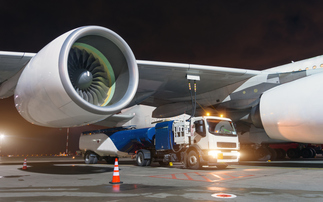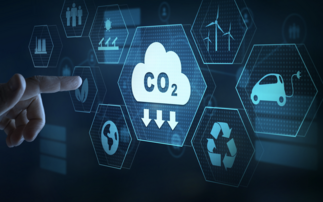On day three of the Paris climate talks questions remain over whether enough finance has been pledged to deliver a successful agreement next week
The UN's top climate official predicts countries will continue to announce new funding for tackling climate change over the coming days, which could help overcome one of the biggest barriers to agreeing an ambitious deal next week.
Christiana Figueres, head of the UN's Framework Convention on Climate Change (UNFCCC), told reporters to expect a "rainfall" of financial commitments from governments because they are increasingly seeing that it is in their own interest to mobilise climate finance.
"Delay is becoming increasingly costly and action is becoming beneficial," she said at a press conference on the third day of the Paris climate talks.
Climate finance is a major sticking point in the negotiations, with many poorer countries arguing they will be unable to commit to ambitious emissions reduction measures unless richer countries pledge fresh funds to help them deploy clean technologies and cope with escalating climate impacts.
This week has already seen a flurry of climate finance announcements. Today, Germany pledged €150m to kick start work by the G7 InsuResilience Initiative, aiming to provide insurance for 400 million people in the most vulnerable countries over the next five years. The European Union today also confirmed €125m to help countries worst affected by the extreme weather phenomenon El Niño.
Meanwhile, the White House yesterday confirmed it would invest $30m for climate risk insurance initiatives in the Pacific, Central America, and Africa. And on Monday Germany, Norway and the UK, signed a memorandum of understanding to provide $5bn to support forest programmes from 2015 to 2020.
According to the OECD, rich countries are more than half way to their target of providing $100bn a year in climate finance to poor countries by 2020.
US Special Envoy Todd Stern today said he was confident the $100bn goal would be delivered. "We are at a pretty high number, both where we are now and where we are projected to be in the next few years," he said, adding that a major concern was to reassure countries that they are on track.
Stern said the total donated so far was higher than the $57bn OECD calculated because of weaknesses in its methodology.
But a row reportedly broke out today over climate finance, with India accusing the OECD of exaggerating the total donated so far. According to the Guardian, the Indian ministry said the OECD analysis that $57bn had been raised so far was "questionable". Indian officials argued just $2.2bn of additional funding had been raised to date.
However, Stern insisted the talks this week had gotten off to a good start, despite a range of challenging issues that still need to be thrashed out by countries over the next nine days.
Negotiators are already working late into the night, with the last set of talks yesterday finishing at 2am. The spin-off group on mitigation last night released an updated section of the draft text outlining ambition for a collective long-term goal for tackling climate change. Significantly, China today announced it would cut emissions from its power sector by 60 per cent by 2020, reducing annual CO2 emissions from coal-fired power generation by 180 million tonnes, the official People's Daily website reported.
A bilateral meeting between the US and the group of Small Island States delivered some progress on the controversial issue of loss and damage - looking at how rich countries help vulnerable countries to pay for the costs of climate shocks, such as flooding, drought and rising sea levels. But the US and UK are keen to remind countries that they will not be providing "compensation" for the impacts of climate change.
However, onlookers have already raised concerns that the talks are moving too slowly, even suggesting Monday's leaders' day created a "distraction" from the negotiations.
"We will get to tomorrow afternoon before we start to see people sniffing the Saturday [text] deadline, and realising that actually 'I'm kind of making a dumb argument and so now I'm going to give it up'," said Karl Upston-Hooper, general counsel for carbon asset management company GreenStream.
Alden Meyer, of the Union of Concerned Scientists, said progress so far had been mixed and it was already clear that several issues were being kicked into next week's high level segment of talks.
"Finance issues continue to be the most difficult, with little movement forward as negotiators continue to hold their chips close to their chest," he said in a statement. "Scaled up and predictable climate finance remains the linchpin to progress on other key issues, including mitigation ambition and adaptation."
This article is part of BusinessGreen's Road to Paris hub, hosted in association with PwC.







